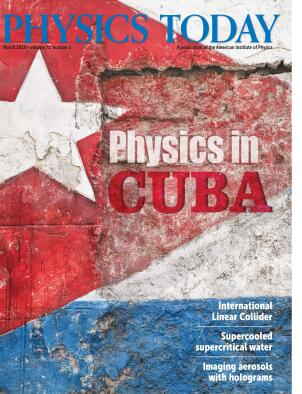Another side to scientist burnout
DOI: 10.1063/PT.3.3861
In his articulate Commentary (Physics Today, September 2017, page 10
Universities are not orphanages, retirement homes, or mental health institutes. In reality, most universities have a great deal of work that has to be done. If employees who appear to have severe mental health issues continue to occupy their posts, someone else will have to do their work and will probably not be paid extra for doing so.
For every professor getting full salary for an inadequate performance, dozens or hundreds of candidates are eager to replace him or her and do a good job. Moreover, we professors have many stress breakers that are not available to other professions: We have sabbaticals to recharge our batteries and get new ideas, and we can give up research for a few years to write a good textbook or take on more administrative duties as an assistant dean, admissions director, or similar position.
Driving a London bus or taxi is far more stressful than being a physics professor. Being a physicist is not exactly like being a professional athlete who usually faces unemployment by age 35, but neither is it intended to be a lifetime entitlement with a salary every month regardless of performance. Hospitals don’t retain medical staff who can no longer perform their duties, and taxicab companies don’t continue to pay mentally impaired drivers. Why should professors be treated differently from plumbers, medical staff, factory workers, or taxi drivers? Some universities would put such staff members as Delle Site describes on involuntary medical leave.
Careers are neither the only goal in life nor the primary one. Perhaps putting time into activities with friends and family, developing a serious hobby, participating in community or church activities, or simply helping others could avoid burnout. One who spends more time helping others will be less prone to cynical disappointment.
More about the authors
James F. Scott, (jfs4@st-andrews.ac.uk) University of St Andrews, Fife, UK.




